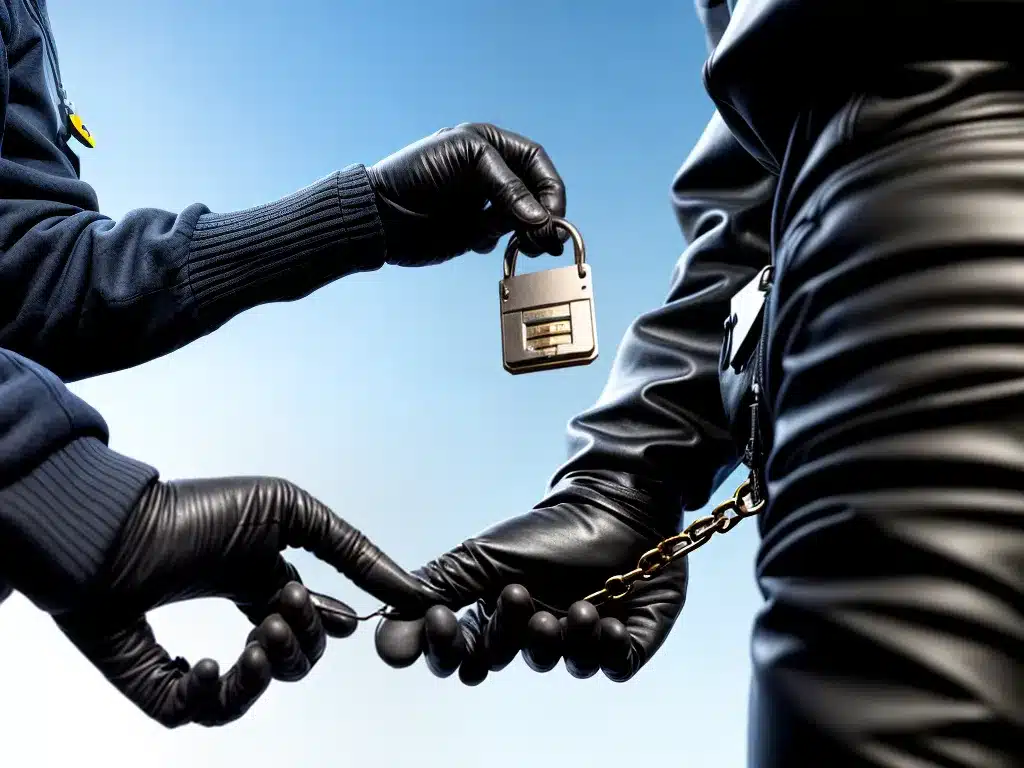NFT Security: Avoiding Scams and Theft
Introduction
Non-fungible tokens (NFTs) have exploded in popularity recently, with sales reaching billions of dollars in 2021. However, as with any new technology, there are risks involved, especially around security and theft. In this article, I will provide an in-depth look at NFT security, including how to avoid scams, best practices for keeping your NFTs safe, and what to do if you are the victim of theft. My goal is to empower NFT owners with the knowledge needed to securely buy, sell and hold these digital assets.
How NFT Scams Work
NFT scams have become increasingly common as the market has grown. Here are some of the most prevalent scam types to watch out for as an NFT buyer or creator:
Fake Collections and Imposter NFTs
- Scammers create fake collections that mimic popular, legitimate projects. The NFT artworks appear similar and use the project name in titles or descriptions.
- Red flags: Newly created collection, very low sales and activity, anonymous creator.
- Scammers also list imposter versions of existing NFTs, hoping buyers don’t check for authenticity.
Rug Pulls
- Creators build hype for a new NFT drop, then pull the liquidity out of the project and disappear once sales begin. Buyers are left with worthless NFTs.
- Red flags: Anonymous team, promises of big rewards, pressure to buy quickly.
Phishing Links
- Scammers share fake websites and wallet links that trick users into connecting their wallets and having funds stolen.
- Red flags: Suspicious URLs, spelling errors, requests to reconnect wallet.
Social Engineering
- Scammers connect with owners and build trust over time while learning about their NFT assets. Then they convince the victim to transfer or list the NFT under false pretenses.
Best Practices for NFT Security
Here are some tips to keep your NFT assets secure:
- Use a hardware wallet like Ledger or Trezor to store NFTs purchased on major marketplaces. This gives an extra layer of protection for your private keys.
- Be selective where you buy and mint. Stick to established marketplaces like OpenSea and only buy from verified collections and creators.
- Use a separate wallet only for risky interactions like airdrops, lesser known marketplaces, and new minting sites.
- Check links carefully before clicking and never enter your seed phrase or connect your wallet on suspicious sites.
- Turn on 2FA for your accounts on marketplaces and crypto exchanges.
- Avoid sharing details publicly about your specific NFT holdings or the value of your collection.
Recovering from NFT Theft
If you are the victim of an NFT scam or hack resulting in theft, here are some steps to take:
-
Contact the marketplace – If the NFT was stolen from OpenSea, Rarible, etc. then reach out to marketplace support. They may be able to freeze the asset, ban the thief’s account or possibly reverse the transaction.
-
Report to blockchain security companies – Alert companies like Chainalysis that track stolen funds on blockchains. This can help identify the hacker and potentially support recovery.
-
Connect with the NFT community – Share details of the theft with other members of the NFT space. They can help alert buyers not to purchase the stolen NFT.
-
Work with law enforcement – Local police may have limited ability to help. But the FBI and other agencies are building expertise around NFT fraud.
-
Consult a lawyer – For high-value thefts, hiring legal counsel may be worthwhile to review options and draft requests to marketplaces or authorities.
Protect Your Investment with Knowledge
While the nascent NFT market does have its fair share of scams and thefts right now, you can take steps to protect your digital assets. Following security best practices, being vigilant for red flags, and acting quickly in case of theft can help minimize your risk. Do your own research, connect with the community, and consult experts if needed – knowledge truly is power when it comes to NFT safety.












